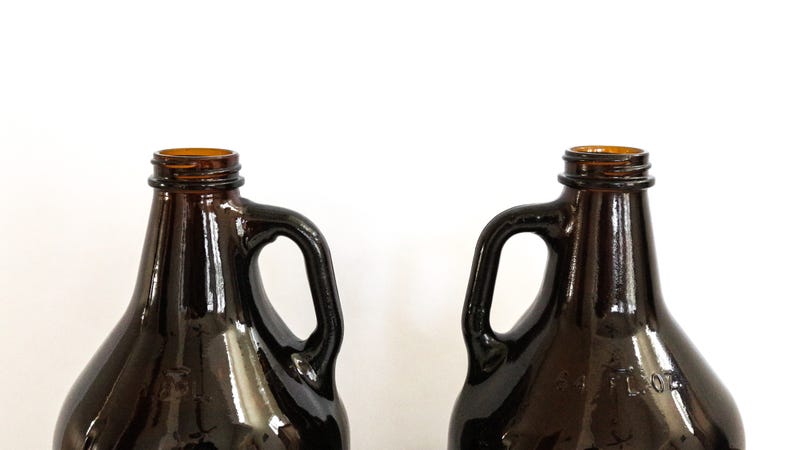
The clock is ticking at Indeed Brewing in northeast Minneapolis.
Indeed, tucked in-between houses, train tracks, restaurants, and more breweries is facing the state's 20,000 barrel per year production limit placed on brewers, that if reached, would prohibit them from selling their products in 64 ounce growlers and 32 ounce crowlers.
"We have probably 18 months to go before we lose growlers and crowlers," said Indeed co-founder and CEO Tom Whisenand.
Minnesota is the only state in the U.S. where all craft breweries can't sell their beer in to go. Despite attempts to change the law, proposed legislation failed in 2021, once again dashing the hopes of many brewers looking for a level playing field.
Whisenand says growlers and crowlers got Indeed and their nearly 100 employees together during the worst of the pandemic.
"If it weren't for growlers we would of have to layoff 20 to 30 percent of our staff. Period," he said. "We didn't have to and we were able to get through the height of the pandemic without making any layoffs. We were to keep everyone on by kind of reducing some hours and things like that."
When Fulton Brewing began, growlers were a backbone for the company according to Fulton co-founder and COO, Jim Diley. However, as Fulton grew, the brewery exceeded the 20,000 barrels per year limit set by state law.
This means Fulton cannot sell growlers for simply producing "too much beer" according to Minnesota state laws.
"For the last two years it's been about flexibility and the fact one of the pieces of flexibility that a lot of breweries have across the state is that ability to sell growlers and crowlers," Diley said. "We haven't had that and it feels a little bit like fighting Covid and all of the headwinds that's brought with a hand behind our back."
Diley says it's about creating equal access to the product.
"We are a small business in Minnesota and employ roughly 30 people," he said. "You can't tell us we're big business. Putting arbitrary caps on just a few, it just doesn't make sense."
Both Fulton and Indeed are part of the Alliance of Minnesota Craft Breweries supporting the #FreeTheGrowler movement. Fulton is among five breweries including Surly,, Lift Bridge, Castle Danger, and Schell’s that are deemed "too big" by a state law that was updated in 2013.
That update brought the cap up from 3,500 barrels.
"We've looked at just snapping a line and saying this is as big as Indeed Brewing Company is going to get," Whisenand said. "The fact is we do participate in the broader distribution business of selling beer to bars, restaurants, and liquor stores across the state. They love our beer and want to sell it, so we want to give them as much as we can."
The state's growler cap law is meant to protect state’s three-tiered liquor system regulating the relationship between producers, distributors, and retailers.
Lifting the cap would have little to no impact on that system, according to Diley.
"99.9 percent of all the beer Fulton brews goes into the three-tier distribution model," Diley said. "We sell it to a distributor who sell it to restaurants and liquor stores in the market. If we produce less beer, that means there's less beer going to those distributors who are employing those drivers, sales reps, and staff. Along with less to bars and restaurants who are already struggling."
Minnesota state Rep. Jim Nash introduced "Free the Growler" legislation in February 2021. While that legislation ultimately hit a road block, Rep. Dan Wolgamott (DFL-St. Cloud) introduced a growler-cap lifting piece of legislation in October 2021.
“It's time to help the craft brewing industry recover from the pandemic, create local jobs, and score a victory for Minnesota's beer drinkers by eliminating the growler cap," Rep. Wolgamott wrote. "As breweries in St. Cloud and around the state continue to grow, I don't want them to be forced to close their taprooms because they can't make enough profit without growler sales to justify staying open. We need to reward success, stand up for consumers, and remove the growler cap."
According to both Diley and Whisenand, breweries across Minnesota, regardless of if they can or cannot sell growlers and crowlers, seem to be in unison when it comes to removing the state's growler cap.
"I am not aware of a small brewery, or smaller brewery, that can sell growlers currently that is opposed to the idea of everybody being able to sell growlers," Diley said. "From our experience, and we're in the North Loop of Minneapolis, there are two other breweries real close to us along with a cidery and we work really well in synergy together."
With a new legislative session starting Monday in St. Paul, Diley adds that there is still hope moving forward that lawmakers can come to an agreement that would level the playing field and help Minnesota breweries.
"Over the fall there were some great conversations and informal hearings held. I think that's a point for optimism. The fact that before the session people engaged in these efforts are coming together with lawmakers, business partners, and people who at times are our opposition to talk about reform. That's a great step. These are reforms that are win-win-win."

